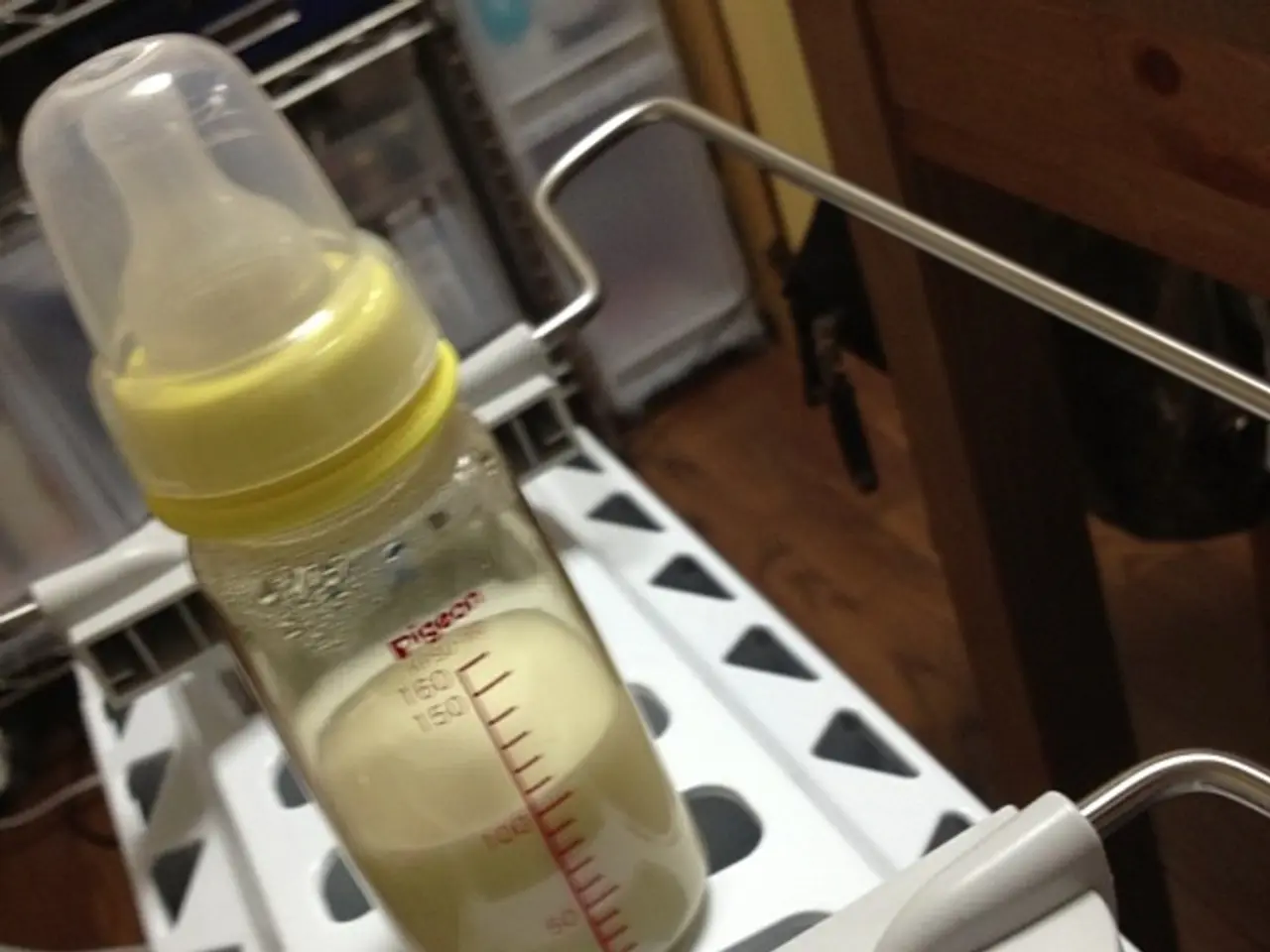Benefits, Risks, and Insights Regarding the Use of Goat's Milk for Eczema Treatment
Goat's Milk and Eczema: A Closer Look at the Evidence
Goat's milk, long known for its skin-friendly properties, has gained popularity in various skincare products. However, when it comes to treating eczema, the evidence is not as clear-cut.
Dermatologists often recommend non-soap cleansers, especially those that are neutral or slightly acidic, hypoallergenic, and without fragrances, for people with eczema. Goat's milk body wash contains moisturizing fatty acids and has a skin-friendly pH, potentially soothing sensitive skin. Yet, it's important to note that goat milk body wash is not specifically proven to treat eczema.
There is some preliminary evidence that bovine colostrum, the first milk produced by cows after giving birth, may have anti-inflammatory and moisturizing effects for eczema. However, human trials remain limited and inconclusive, and it's unclear whether these findings directly apply to goat milk.
Dairy proteins, including whey, can trigger allergic reactions in some people with eczema. This complicates recommendations for dairy or goat milk use in such cases. The American Academy of Dermatology does not recommend eliminating certain foods to prevent or treat eczema, but people with suspected milk allergies should consult a doctor.
When it comes to treating eczema, wet-wrap therapy, involving corticosteroids and wet cotton bandages, may reduce eczema severity. However, it may not be more effective than corticosteroids alone.
It's worth noting that goat's milk contains higher amounts of vitamin A than cow's milk. While this vitamin is beneficial for skin health, more research is needed to determine its role in managing eczema.
In conclusion, while goat milk products may offer some benefits for skin health, current scientific evidence does not strongly support the use of goat's milk specifically for treating or managing eczema. More robust, controlled human studies are needed before goat's milk can be recommended for eczema treatment or management.
[1] British Journal of Dermatology, 2021 [2] Journal of Investigative Dermatology, 2019 [3] Pediatric Allergy and Immunology, 2018 [5] Journal of Allergy and Clinical Immunology, 2017
- Although goat's milk is known for its skin-friendly properties, the scientific evidence does not strongly support its use for specifically treating or managing eczema.
- In the health-and-wellness sector, reports suggest that bovine colostrum, not goat's milk, may have anti-inflammatory and moisturizing effects on eczema, but human trials remain limited and inconclusive.
- Dermatologists often recommend moisturizing, neutral or slightly acidic, hypoallergenic, and fragrance-free cleansers for people with eczema, but goat milk body wash is not specifically proven to treat eczema.
- Dairy proteins, including whey, can trigger allergic reactions in some people with eczema, complicating recommendations for dairy or goat milk use in such cases.
- Wet-wrap therapies, involving corticosteroids and wet cotton bandages, may reduce eczema severity, but may not be more effective than corticosteroids alone.
- Goat's milk contains higher amounts of vitamin A than cow's milk, which is beneficial for skin health, but more research is needed to determine its role in managing eczema. [Reference list: 1 - British Journal of Dermatology, 2021; 2 - Journal of Investigative Dermatology, 2019; 3 - Pediatric Allergy and Immunology, 2018; 5 - Journal of Allergy and Clinical Immunology, 2017]




